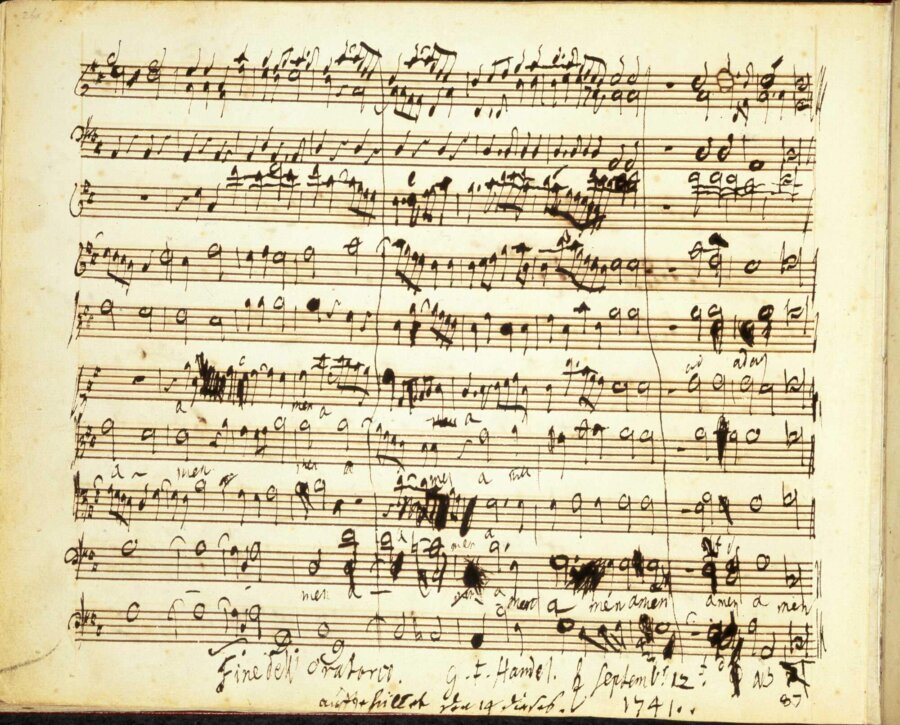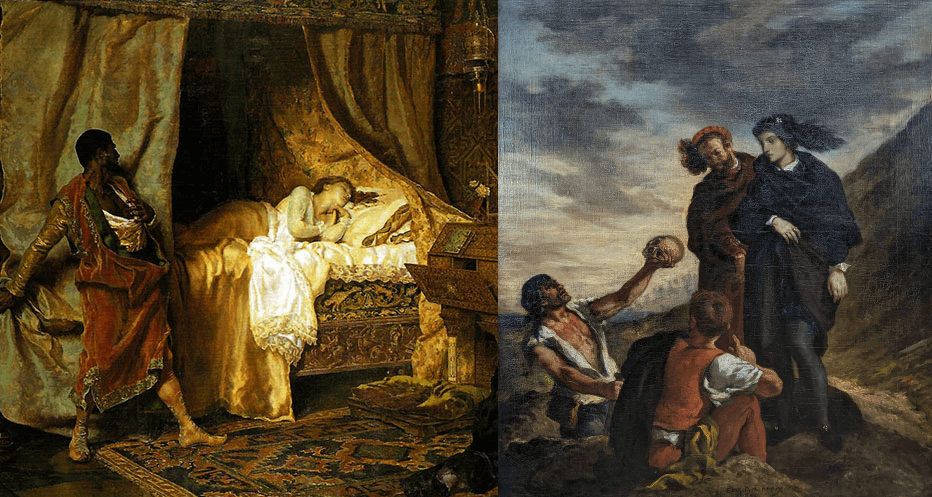Ten Odd Facts about Handel’s “Messiah”

While Handel’s Messiah is, for many, an annual Advent spectacle—certainly orchestras and choirs across the country and abroad are delivering right now—in the Classical Girl household, the 1741 oratorio gets pulled out during Triduum, that three-day sacred period commencing with Holy Thursday and culminating with Easter. Hearing that famed Hallelujah chorus early on Easter Sunday? Wow. Transcending. But since Messiah was written in three parts to depict Jesus’ life and resurrection, it serves up just as well in December.
Messiah is an oratorio, which is sort of like an opera without the acting, grand pantomiming, and expensive sets, and tells a sacred story, not a racy one. Handel composed more than twenty oratorios. He’d composed plenty of operas (final tally: forty), but they were more expensive to produce, and the popularity of his opera works had begun fading. In 1741 he decided to take a break from it all and leave his London base for a sabbatical in Ireland. It was here that he composed Messiah. It premiered in Dublin on April 13, 1742, during Easter season.
Want to listen to it as you read? Here you go! (A three-minute BBC introduction precedes the music, which starts at 3:40.)
But what you really want to know are the odd facts, right? So, without further ado…
10 Odd Facts about Handel and his Messiah
The original [German] spelling and pronunciation of George Frideric Handel’s name is Georg (GAY-org) Friedrich Händel (HEN-del). His father was a barber-surgeon (I know, right?) and Handel’s original game plan for life was to study and enter the practice of law. While in law school, he started playing the organ for a local church, and, well, that started the composing music ball rolling.
Handel was British… but not… just like King George I was British, but not. King George I was German-born, from Hanover. Before the young Handel moved to England, he’d served as Kapellmeister for George (then the Elector of Hanover) in Germany before he became King of England. Once they were both in England, well, it was likely an easy choice to stay affiliated. Handel loved England, and 1726 he became a naturalized British subject.
By 1741, Handel had fallen deeply into debt and was even threatened with debtors’ prison. Instead, he departed to Ireland for a sabbatical, where he wrote his Messiah.
Handel composed Messiah in just twenty-four days, a staggering feat, given the original score is 259 pages. Yikes. That’s some productive off-time.
In spite of the fact that Handel himself was in bad shape financially, he premiered Messiah in Dublin as a benefit, to help out some of the inmates stuck in debtors’ prison. The benefit performance was a rousing success, and 143 debtors were released from prison as a result.
As a gesture of thanks, Handel’s Irish backers returned the favor by paying off some of his own London debts.
The first London performance, a year later, wasn’t as unequivocal a success. Criticism was voiced that the work’s subject matter was “too exalted to be performed in a theatre, particularly by secular singers.” Handel tried to appease the conservatives by using a different name, calling it the “New Sacred Oratorio” instead of “Messiah.” Even then, however, the London reception of the production remained cool, and the oratorio was only performed three times that year instead of the anticipated six. Until, a few years later, at the London Foundlings’ Hospital…
Handel performed a mix of new music and older pieces including the “Hallelujah” chorus at London’s Foundling Hospital, in 1750, for a charity concert. At the time, Messiah hadn’t made its splash with London audiences (see above), but the concert was so well received that Handel was invited back the next year, where he performed the entire Messiah oratorio. Performances of Messiah became an Eastertime tradition there until the 1770s. Earnings from many early performances of the oratorio were used to help the poor, needy, orphaned, widowed, and sick.
The complete oratorio of Messiah has fifty movements, but it was otherwise a modest production. In the years after Handel’s death, Messiah was adapted for performance on a much larger scale, with giant orchestras and choirs. Mozart, as well as a few other composers, played around with it, offering a fresher (at the time) adaptation. Today, you can buy the Mozart adaptation, the original, an abridged version, popular excerpts version, Part I & II version, etc.
Audiences typically stand during the “Hallelujah Chorus” movement of Messiah. One story as to why dates back to when King George II (son of King George I) heard it being performed for the first time. Story has it, he was so dazzled, so overcome with emotion, he rose to his feet automatically. And when the king rises, all rise. So, there it is. Fact or myth? You make your own call.




